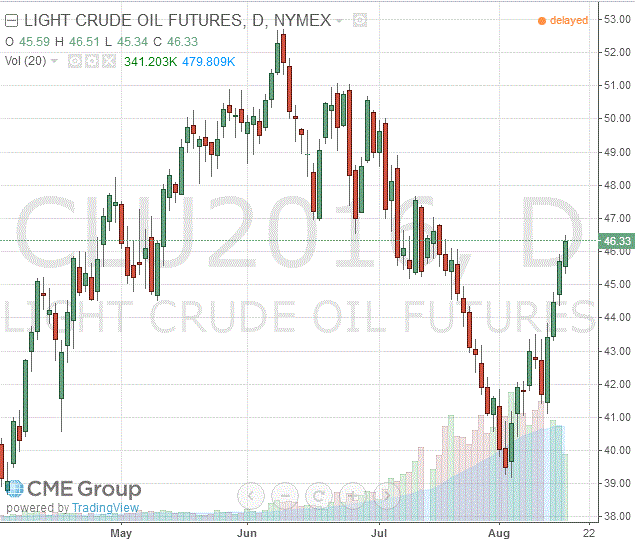- Oil continue to rise
Noticias del mercado
Oil continue to rise
The cost of oil futures rose more than a percent, reaching the highest level in more than five weeks. Support to the markets was expectations of reaching an agreement between the oil-producing countries, as well as concerns about the situation in Venezuela.
Market participants believe that at the September meeting, OPEC could decide to freeze the growth of production. In the past two years, some OPEC members building up oil production despite low prices, resulting in oversupply.
Meanwhile, the oil minister of Nigeria Emmanuel Kachikvu pointed out that he considers unlikely to reach agreement on the reduction of production by OPEC member countries. Earlier this year, an attempt to freeze the level of production was not a success because of Iran's refusal to participate in the initiative. However, analysts at JPMorgan view moderate optimism about the production freeze. In their view, Saudi Arabia is likely to be more compliant with other manufacturers at the upcoming meeting of OPEC
With regard to the situation in Venezuela, the volume of oil production in the country is collapsing because of the political and economic crisis. Over the past 12 months the volume of crude oil production decreased by 9%, reaching a level of 2.36 million barrels a day.
Investors are also awaiting the publication of weekly data on US oil and petroleum products. In recent weeks, the cumulative US crude stocks and petroleum products grew, and their further increase can put pressure on prices. Today we have inventory data from the American Petroleum Institute, and tomorrow the official report from the US Department of Energy
The cost of September futures on US light crude oil WTI rose to 46.33 dollars per barrel.
September futures for North Sea petroleum mix of Brent crude rose to 48.91 dollars a barrel on the London Stock Exchange ICE Futures Europe.
